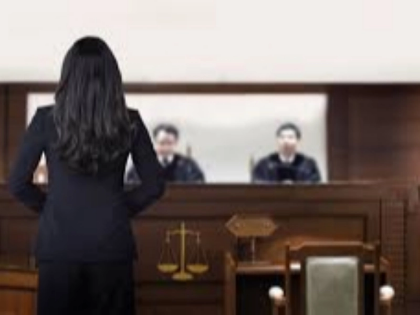Taking Charge of Your Rights: Knowing When to Get Legal Help
There are about 5 billion individuals who do not have access to real justice. The goal of the global movement known as legal empowerment is to provide communities with the authority to understand, apply, and influence the laws that have an impact on their daily lives. When you have other legal issues or are involved in a dispute, it is critical that you obtain legal counsel as soon as possible. Waiting can damage your case, increase your overall costs, and cause you to make expensive mistakes.
1. In the course of a disagreement

2. When a lawsuit is pending
 To protect your rights and interests, a lawyer's advice, experience, and knowledge are priceless. Legal advice can help with a range of issues, such as civil proceedings, criminal prosecutions, and legal paperwork.
When a party submits a complaint, petition, or other legal paperwork to the court clerk, the court case officially starts. These documents must be served (also known as served by process) to the opposing party after they have been filed. By doing this, it makes sure the defendant is informed that they are the subject of a lawsuit.
A person accused of a crime is guaranteed the right to counsel during criminal proceedings by the Sixth Amendment. Courts, however, differ in their interpretation of when this right is applicable in civil disputes. This privilege is protected by statute in certain states but not in others. Research indicates that a right to counsel would be more effective if it applied sooner in the legal process, regardless of whether a state provided this protection.
To protect your rights and interests, a lawyer's advice, experience, and knowledge are priceless. Legal advice can help with a range of issues, such as civil proceedings, criminal prosecutions, and legal paperwork.
When a party submits a complaint, petition, or other legal paperwork to the court clerk, the court case officially starts. These documents must be served (also known as served by process) to the opposing party after they have been filed. By doing this, it makes sure the defendant is informed that they are the subject of a lawsuit.
A person accused of a crime is guaranteed the right to counsel during criminal proceedings by the Sixth Amendment. Courts, however, differ in their interpretation of when this right is applicable in civil disputes. This privilege is protected by statute in certain states but not in others. Research indicates that a right to counsel would be more effective if it applied sooner in the legal process, regardless of whether a state provided this protection.
3. In the course of a legal exam
 An important aspect of a trial or other legal proceeding is the examining process. In order to ascertain a witness's knowledge and establish credibility for a lawyer's case, it entails questioning them. The two sorts of examinations are called cross and direct, and they each have unique goals and methods.
The witness is questioned by the attorney who called them in order to obtain their narrative, or "testimony," of what transpired during the occurrence. Most state rules prohibit attorneys from posing "leading" questions during direct examination—that is, questions that imply the response they are seeking.
When handling complicated legal concerns like litigation, real estate transactions, or intellectual property challenges, having knowledgeable legal counsel can make all the difference. Lawyers are highly knowledgeable and skilled in the legal field, enabling them to offer efficient legal solutions customized to your unique requirements. They also possess a thorough comprehension of legal precedents, statutes, rules, and principles. They frequently collaborate with other legal experts to establish right-to-counse laws and practices, and they stay up-to-date on legal changes in their field of expertise.
An important aspect of a trial or other legal proceeding is the examining process. In order to ascertain a witness's knowledge and establish credibility for a lawyer's case, it entails questioning them. The two sorts of examinations are called cross and direct, and they each have unique goals and methods.
The witness is questioned by the attorney who called them in order to obtain their narrative, or "testimony," of what transpired during the occurrence. Most state rules prohibit attorneys from posing "leading" questions during direct examination—that is, questions that imply the response they are seeking.
When handling complicated legal concerns like litigation, real estate transactions, or intellectual property challenges, having knowledgeable legal counsel can make all the difference. Lawyers are highly knowledgeable and skilled in the legal field, enabling them to offer efficient legal solutions customized to your unique requirements. They also possess a thorough comprehension of legal precedents, statutes, rules, and principles. They frequently collaborate with other legal experts to establish right-to-counse laws and practices, and they stay up-to-date on legal changes in their field of expertise.
4. In the course of a hearing
 Legal representation in criminal matters offers priceless advice and knowledge that can protect your rights all along the way. They have years of legal education and experience, giving them a thorough understanding of pertinent laws, rules, and court decisions that they may apply to your particular circumstance.
Legal representation is more complicated than most people realize. Although it's not always the case, movies and television have given the impression that everyone has the right to counsel in any circumstance.
Some jurisdictions have taken a more distinctive stance in interpreting the right to counsel, and some have included explicit language in their legislation that specifies the precise circumstances under which legal assistance is required. For instance, Maryland mandates that the court assign an attorney to impoverished defendants based on their initial court appearance and specifies that this requirement extends to all subsequent proceedings in the same case.
Even though many people decide to represent themselves in hearings, it is strongly advised that you consult with an experienced attorney. A lawyer's counsel and direction can guarantee that your rights are upheld and that your case is made as compellingly as possible.
Legal representation in criminal matters offers priceless advice and knowledge that can protect your rights all along the way. They have years of legal education and experience, giving them a thorough understanding of pertinent laws, rules, and court decisions that they may apply to your particular circumstance.
Legal representation is more complicated than most people realize. Although it's not always the case, movies and television have given the impression that everyone has the right to counsel in any circumstance.
Some jurisdictions have taken a more distinctive stance in interpreting the right to counsel, and some have included explicit language in their legislation that specifies the precise circumstances under which legal assistance is required. For instance, Maryland mandates that the court assign an attorney to impoverished defendants based on their initial court appearance and specifies that this requirement extends to all subsequent proceedings in the same case.
Even though many people decide to represent themselves in hearings, it is strongly advised that you consult with an experienced attorney. A lawyer's counsel and direction can guarantee that your rights are upheld and that your case is made as compellingly as possible.








